Always the invincible hero, energetic and playful, Jackie Chan (
Recently, however, rumors have been circulating that he has contracted cancer, hence his reluctance to take comic roles in Hollywood movies. Chan talked frankly with the media on his visit to Taipei earlier this week.
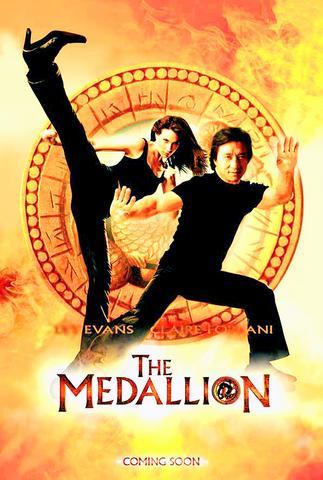
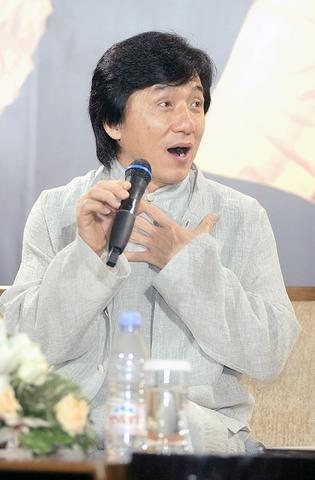
PHOTO: LEE KAI-MING, TAIPEI TIMES
Q: There was a rumor saying you had throat cancer? What happened?
Jackie Chan: Yesterday I went to NTU Hospital for a check-up. The doctor found a tubercule and I had a paracentesis test. The test result was negative. So I'm fine. I once again tell you that my health is OK, no problem. But to tell the truth, I was really scared doing the test. I grabbed the nurse's hand so hard because of fear. I guess I hurt her.
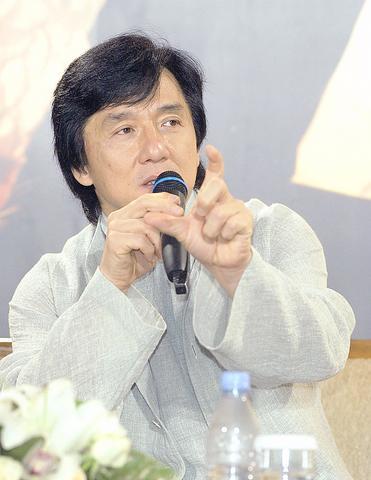
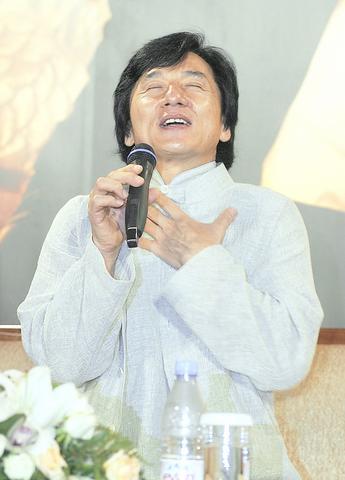
Q: How did it feel to kiss Claire Forlani in ?`The Medallion?' You rarely do such romantic scenes.
Chan: We are lovers in the film. So there was a kissing scene. When we shot that scene, I was just thinking whether it should be a long kiss or a quick one, should I open my mouth, but she [Forlani] just held my arms and gave me a French kiss. After the take, she was calm and natural but my face was all red. I'm really not good at romantic scenes. There was another scene when I was dead, lying naked in the morgue. Claire needed to cry over my body and touch me. But something was tickling me and I laughed. And we had to do that take again. It took us several times to do that take and I felt very embarrassed.
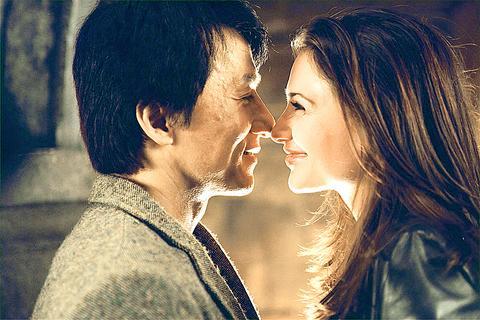
PHOTO COURTESY OF UIP
Q: The film took place in a castle in Dublin. Did you drink a lot of Guinness beer?
Chan: I had quite a few pints of Guinness. I'm not a good drinker but I act like it. When drinking, I have the word "brave" on my forehead and the word "dead" written on my back!
Q: After working in Hollywood all these years, how is your English now?
Chan: At the beginning it was very difficult. Now I'm doing fine. My English is Jackie Chan English. I may have some grammar mistakes. But if you understand it, good. If not, sorry!.
Q: The new film has adapted lots of special effects, which are seldom seen in Jackie Chan movies. Do you like them?
Chan: It's a very new experience for me. My films have been famous for real action. So for me, using wires to hang in the air was new to me. I basically just let the English stuntman direct me as to what to do. But once the steel wire on my chest broke. It hit my face and I just saw black before my eyes. When I touched my face, it was full of blood. It's lucky that my eyes were not hurt.
Q: What differences are there working in a Hollywood studio?
Chan: When you work there, you are the foreigner, so the whole process is hard. Our way of shooting is very fast and you feel they are so slow, that sometimes you think it's dumb. Making films in America you don't feel a sense of superiority, though, because they always try to control you. If you need to set up lighting equipment in a corner about 5m high, they will hire a man with an elevator to slowy lift this person to the point to set up the light. But if it's in Hong Kong, we just get a rope and climb up.
Hollywood is a very big market. The box office revenue in one day is higher than that for one year in Hong Kong. So you still want to take on new challenges there. You can learn a lot of things. I have been fighting to get into Hollywood. Twenty years ago my salary for a movie was HK$4.5 million (US$600,000) which was top among all Asian actors. But when I went to Hollywood for the first time, [making Cannonball Run II in 1984], I found out that my acting partner Burt Reynolds's salary was US$5 million. I realized that the world outside was very different. Who'd have thought that in 20 years my pay for a movie would become US$20 million plus bonuses? I've never thought I would have my hands printed in front of the Chinese Theater in Los Angeles. I think God has been very kind to me.
Q: If you die and were resurrected, as happens in your latest film, would you choose to be an actor again?
Chan: Yes, definitely. It's hard to imagine not doing films. Wherever I go, I'm always looking for shooting locations. Like this hotel I stayed in yesterday. I was looking outside, thinking if I could jump and enter this large window. And when I was in Amsterdam, I saw this building with an inclined angle, so I immediately told my producer to check this location for shooting. You know my films are about action in all those interesting locations. You have to make use of the environment in designing the action scenes.
Q: What are your next film projects?
Chan: I've finished shooting Around the World in 80 Days [with English comedian Steve Coogan]. I will be talking to Stanley Tong (
Q: The 40th Golden Horse Awards plans to invite previous winners to "come home" and join the ceremony, including you and your wife. Will you bring her back to Taiwan again?
Chan: I will come, but she won't. Nobody can persuade her. Ai-ya! She has stopped going to these kinds of events so you can stop asking me. There will be so many people, cameras and media. She would be scared. I don't think she would come -- unless there was an award for her.
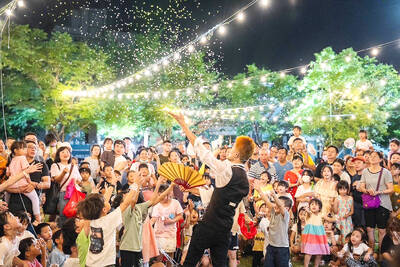
The depressing numbers continue to pile up, like casualty lists after a lost battle. This week, after the government announced the 19th straight month of population decline, the Ministry of the Interior said that Taiwan is expected to lose 6.67 million workers in two waves of retirement over the next 15 years. According to the Ministry of Labor (MOL), Taiwan has a workforce of 11.6 million (as of July). The over-15 population was 20.244 million last year. EARLY RETIREMENT Early retirement is going to make these waves a tsunami. According to the Directorate General of Budget Accounting and Statistics (DGBAS), the
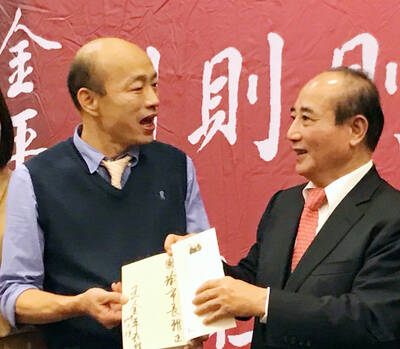
Many will be surprised to discover that the electoral voting numbers in recent elections do not entirely line up with what the actual voting results show. Swing voters decide elections, but in recent elections, the results offer a different and surprisingly consistent message. And there is one overarching theme: a very democratic preference for balance. SOME CAVEATS Putting a number on the number of swing voters is surprisingly slippery. Because swing voters favor different parties depending on the type of election, it is hard to separate die-hard voters leaning towards one party or the other. Complicating matters is that some voters are
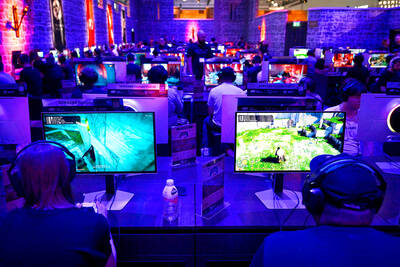
Five years ago, on the verge of the first COVID lockdown, I wrote an article asking what seemed to be an extremely niche question: why do some people invert their controls when playing 3D games? A majority of players push down on the controller to make their onscreen character look down, and up to make them look up. But there is a sizable minority who do the opposite, controlling their avatars like a pilot controls a plane, pulling back to go up. For most modern games, this requires going into the settings and reconfiguring the default controls. Why do they
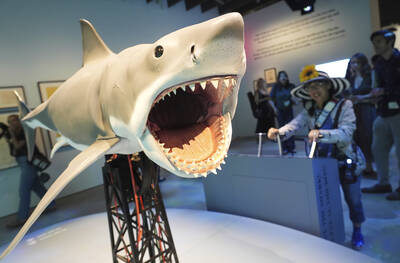
Take one very large shark, a boat (we’re gonna need a bigger one of those) and a movie that ran way over budget and you’ve got all the ingredients of a career-making film for one of Hollywood’s most successful directors. Now fans of Jaws — Steven Spielberg’s terrifying thriller about a man-eating shark — can re-live the movie as it celebrates its 50th anniversary in an exhibition at the Academy Museum in Los Angeles. “The film certainly cost me a pound of flesh, but gave me a ton of career,” Spielberg told reporters as he toured exhibits of props and memorabilia